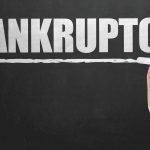If you feel like you’re in over your head with personal debt, you’re not alone. Millions of Americans have become overextended, many as a result of easy credit provided by banks and impact of the most recent recession. Credit cards, medical bills, personal loans, and high interest rates do not make a good financial mix.
Five strategies you may want to avoid:
The first piece of advice from leading financial advisors is to be sure you don’t make your situation worse by making these common mistakes:
1. Beware of just paying the minimum payments on your debts. This will result in your overall debt actually growing and your problems will only become worse.
2. Avoid borrowing from your retirement savings. Your retirement account is the one thing that is absolutely beyond the reach of creditors regardless of your financial situation.
3. Avoid taking out a new high-interest loan to pay off lower interest rate loans. It may be easier to just have one payment, but it will actually increase the amount you have to pay back.
4. Beware of unscrupulous credit counselors that demand cash upfront or high fees for help they promise, but don’t deliver.
5. Beware of relying on friends and family, as it could damage relationships with the most important people in your life.
Debt Settlement vs Bankruptcy – Why Should You Pay Twice
You may have heard about companies advertising that they can settle your debt for less than what you owe. Is this process legitimate? Debt settlement company is a possible solution for many people struggling with a financial hardship, but you have to understand all of the implications before you begin.
Debt settlement is the process of negotiating with your creditors to get them to reduce a potion of your debt. Sounds fairly straight forward – but – the one fact that Debt Settlement Companies do not tell you is that there is a tax consequence when a creditor accepts less than the amount owed.
Creditors are not stupid. They are business people. There are always tradeoffs. The tradeoff in debt settlement is that a creditor has the right to file a Form 1099C with the IRS, which must be declared by you as ordinary income that you must pay tax on. For example, you may think that you are settling a debt for 50 cents on the dollar, but in reality, you are paying the U.S. Treasury another 10 to 20% for the right to settle that debt! On top of that, you are paying a fee to the settlement company and may be continuing to put up with collection calls and letters during the process, or maybe even litigation!
There Is No Tax Consequence When You File Bankruptcy
Very simply, when you file for bankruptcy, there is absolutely no tax consequence! Section 108 of the Internal Revenue Code lays this out in very simple language. Even if a 1099C is issued by a lender, the lender is required to state on the form that you filed bankruptcy.
The Bottom Line is that if you are burdened with debt, don’t get burned twice. Bankruptcy can prove to be the most efficient and effective way of getting out of debt.
